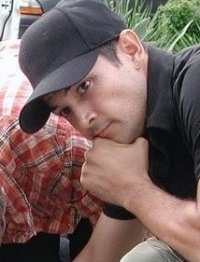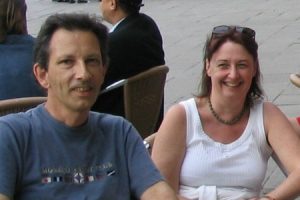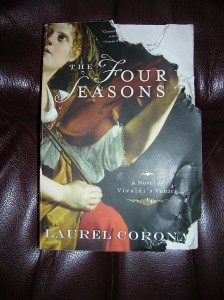I’m spending the weekend up in the San Bernardino mountains working with my son, Ivan Corona, co-founder of Singularity Pictures (http://singularitypictures.com) on a video about UNTIL OUR LAST BREATH. That’s him, to the right, on location for another project. I have two equally strong professional identities, one as a writer and the other as an educator. I started teaching writing at the college level more than thirty years ago, and whatever I’m doing, I’m always tracking how it might be of use to students. I’m thinking now in terms of two contributions I can make through this video.
other as an educator. I started teaching writing at the college level more than thirty years ago, and whatever I’m doing, I’m always tracking how it might be of use to students. I’m thinking now in terms of two contributions I can make through this video.
First, I learned a great deal about writing by taking on the multi-year task of writing UNTIL OUR LAST BREATH, which was, among other things, my first book for an adult audience, my first full-length book, and my first experience working with someone else on a project where I was the writer. With content as interesting as that in UNTIL OUR LAST BREATH, it’s easy to overlook the other story of any book, which is how it came into existence–how a writer decides to take on a project and the initial decisions that have to be made once that decision is reached. Voice, point of view, interwoven narratives, and the different and occasionally conflicting demands of storytelling and historical accuracy are all things I know a lot more about as a result of writing UNTIL OUR LAST BREATH. I would like to share my perspectives as its author with high school and college students taking composition classes, as well as book groups or other audiences interested in writers and the writing process in general.
Second, as a result of a number of recent mandates, a great deal of effort is going into improving classroom instruction about the Holocaust. My new video project, “A WORLD ENTIRE,” is intended also to work as part of this new curriculum by providing background information about the Nazi occupation of Lithuania, the Vilna ghetto, and Jewish resistance. Talking about my own experiences writing about the Holocaust may also help students open up about the subject themselves. To make this project maximally useful for teachers across the curriculum, the video will conclude with about a dozen topics for class discussion or writing assignments.
My plan is to provide this roughly 20-30 minute video free of charge to schools and other groups interested in using it for non-profit, educational purposes. Ivan and I are also working on a short introduction to the video, which will be posted on YouTube. We’re still several months away from completion, so I hope you will check back for updates.



